Current & Previous Research
on Media, Migration and Religion/Politics:
Muslim Everyday Life and Digital Media Practices in Post-Migrant Contexts
In my postdoctoral research project I focus on Muslim everyday life and digital media practices in postmigrant contexts. Through digital ethnography, fieldwork in different ‘offline’ as well as ‘online’ contexts, I explore dynamics and practices of connecting and excluding in different Muslim communities in Germany and the German-speaking public sphere.
New spheres of Muslim activism and participation as well as Anti-Muslim racism and the Securitisation of Islam in Germany, are important issues in this research. I explore these themes through a focus on everyday experiences, e.g. through a focus on the call to prayer in pandemic times and Muslim women’s practices and contested public spaces.
In this context I also investigate social, visual, and digital practices, using digital and experimental ethnography and digital curatorial strategies for the co-creation of knowledge in the curatorial project and intervention in public space Muslim*Present which is part of the exhibition The Entire Story Starts Where.
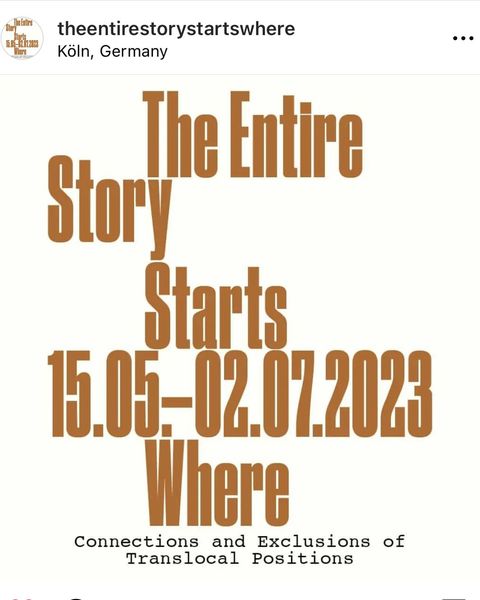
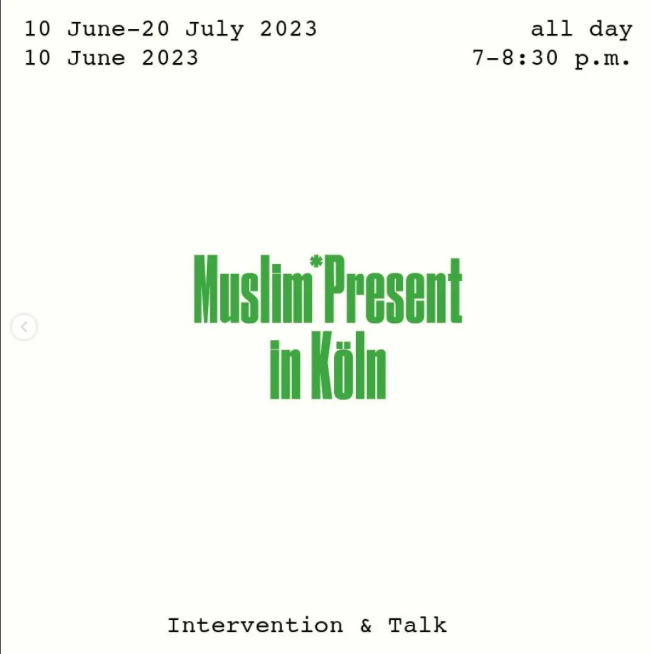

In this project I also focus on the everyday curating of social media profiles, and additionally take part in the collaborative team ethnographic approach Hashtag Islam on Instagram.
Political Violence, Religion, and Artistic Practices
As part of the project “Jihadism on the Internet”, I have been working at the intersection of political violence, religion, and artistic practices. I have been informed by critical and decolonial perspectives in this field.
Together with Larissa-Diana Fuhrmann I curated the ongoing digital platform reCLAIM: art against political violence and organized events surrounding the platform.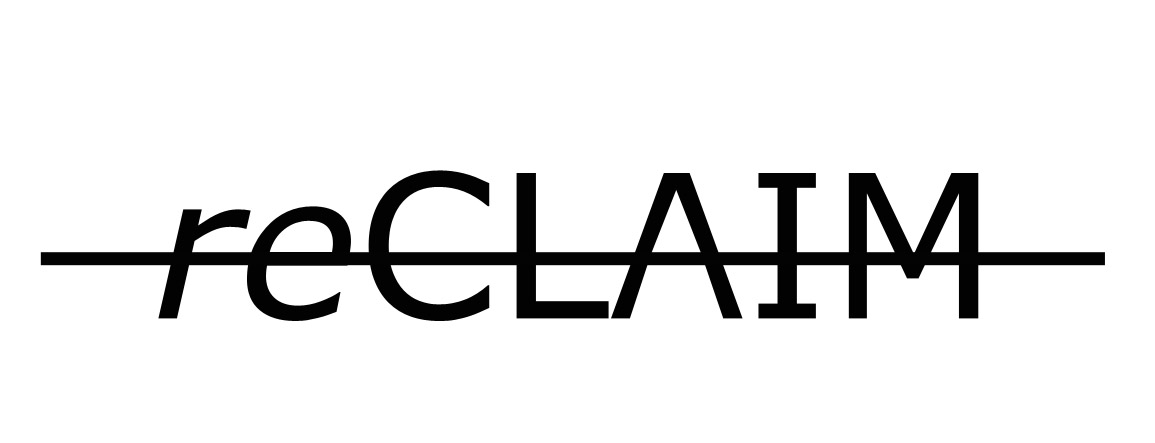
The co-edited volume (together with Christoph Günther and Robert Dörre) on Disentangling Jihad, Political Violence and Media with Edinburgh University Press just came out in October 2023.
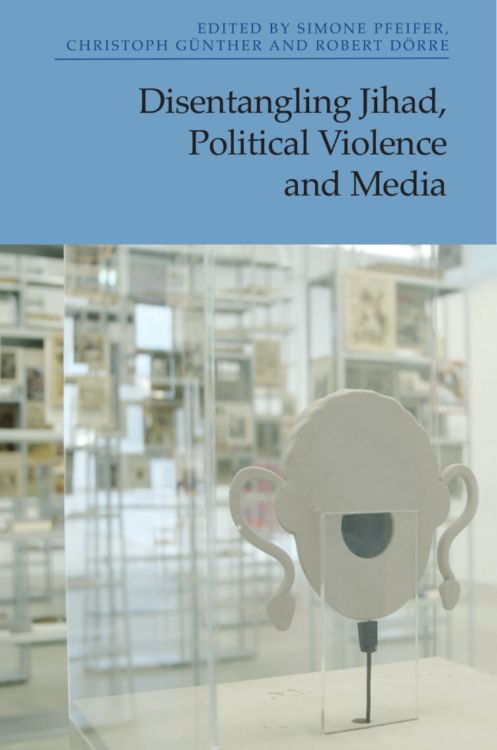
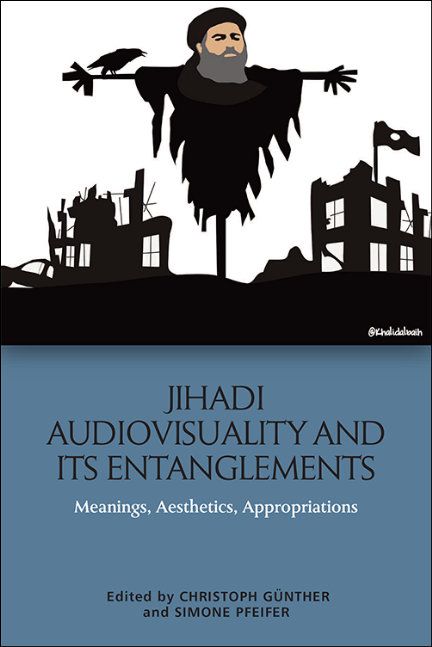
This work also builds on the co-edited book Jihadi Audiovisuality and its Entanglements and the co-authored article on Re-enacting violence (2020) where we explored the appropriations of IS decapitation videos and sounds by very different kinds of actors in contested digital public spheres.
Social Media in Transnational Everyday Life
My book on social media in transnational everyday life (Social Media im transnationalen Alltag, 2020, transcript Publisher) is based on my PhD research, a multi-sited media ethnography in Berlin, Dakar and ‘online’.
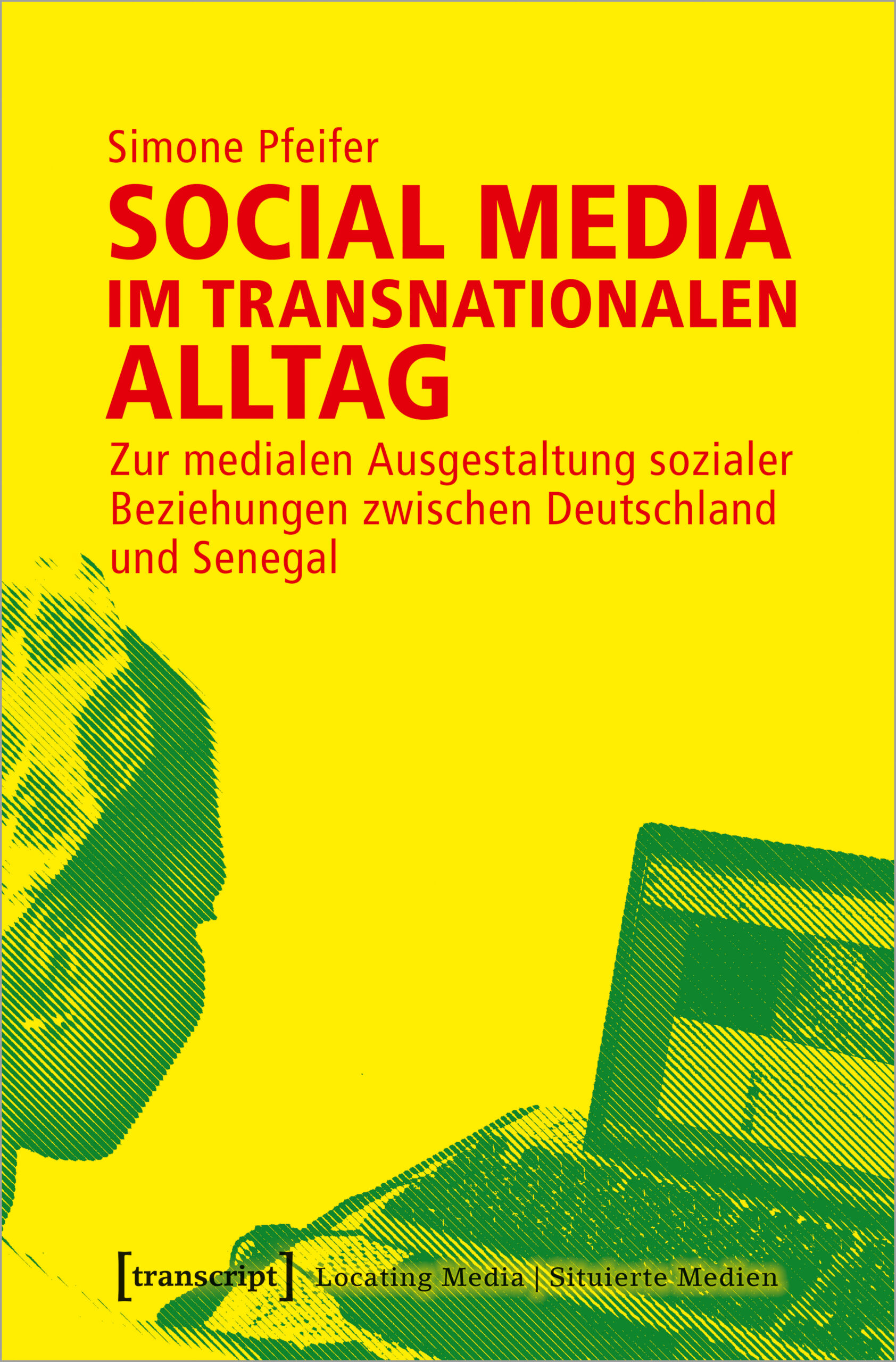
The book analyzes media practices and transnational social relationships across multiple media like videos, photography, mobile phones, Skype, or Facebook, and starts out with a focus on transnational religious and life-cycle celebrations like weddings or the “Magal de Touba”. Through the perspective on images that Senegalese are making and circulating of themselves the book also offers alternative interpretations to images of migration and refugees that dominate journalistic media. The recently published articles Intimate Pictures (2023), In/Visible Images of Mobility (2021), Expanding the Family Frame (2021), and the photo-essay Circulating Family Images (2020) additionally reflect on my PhD research through the lens of embodied media and image practices and family involvement.
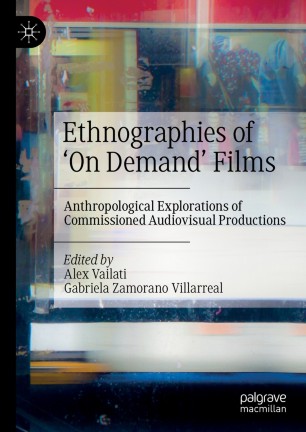
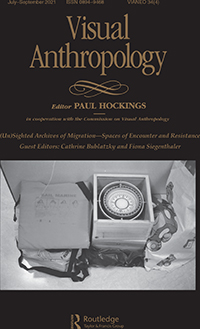
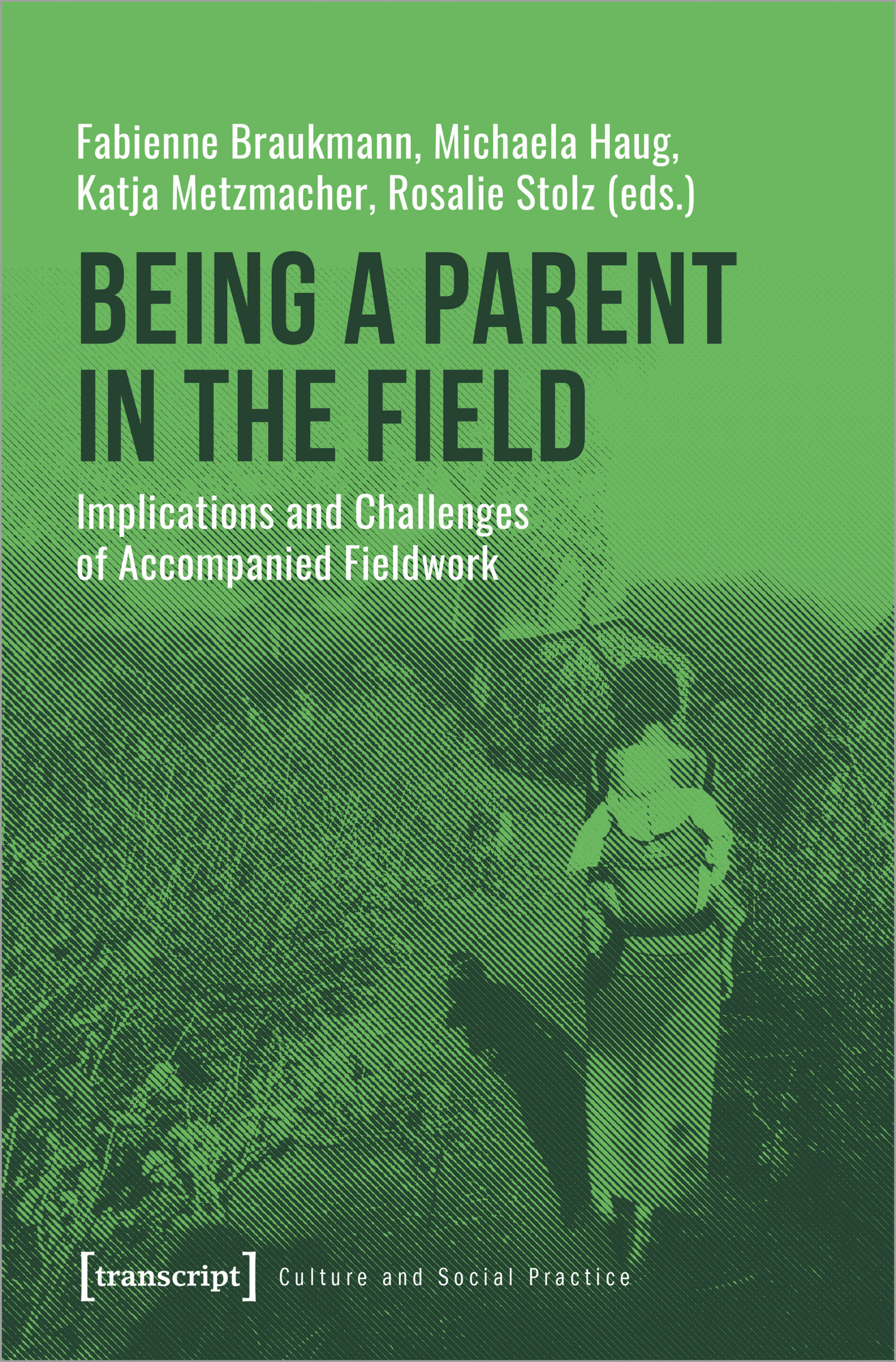
Further Crosscutting Themes and Interests:
Ethics in (Digital) Ethnography & Image Ethics
In recent years, exploring and taking serious ethical challenges of my research has become central to my work. Together with Larissa-Diana Fuhrmann I focused on ethical challenges in digital ethnography that relate to the securitization of Islam.
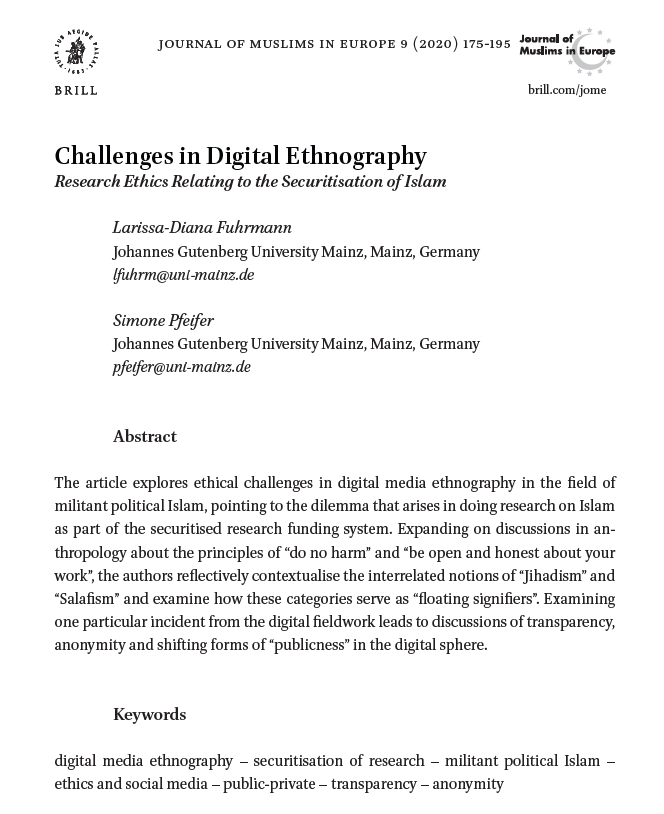

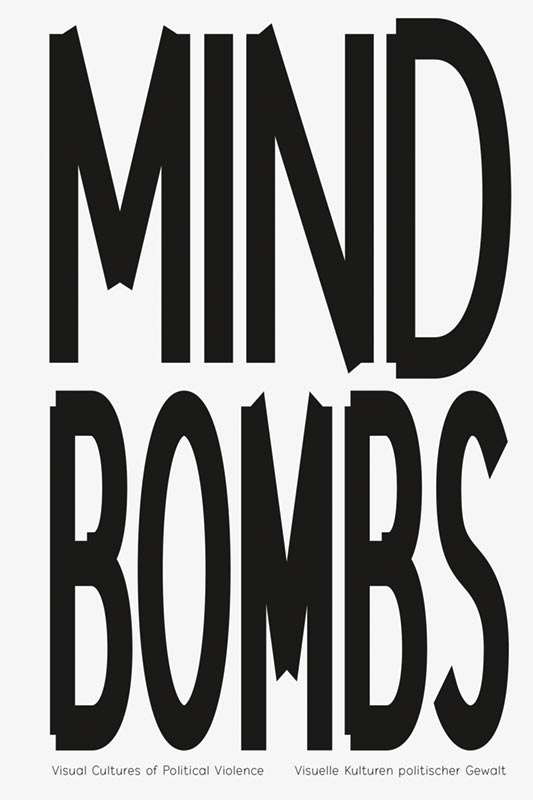
A dedicated section on ethical challenges of empirically grounded research on Jihadism in the co-edited volume Jihadi Audiovisuality and its Entanglements further reflects this research focus as does the co-edited special section and its introduction Dark Ethnography? Encountering the ‘Uncomfortable Other’ in Ethnographic Research, that focuses on ethical dilemma situations and methodological challenges of ethnographic research in militant religio-political and far-right contexts. In another strand on ethical challenges, I focus on images of violence and ethical perspectives in journalistic images, e.g. in an article that I wrote together with Robert Dörre and Christoph Günther for the exhibition catalogue Mindbombs. Visual Cultures of Political Violence.
Collaborative, Curatorial, Postdigital, & Audiovisual Methods
A critical and reflexive perspective informs my thinking about and with methods and is also the basis for my theorising. By focusing on collaborative research and ethnographic research in teams, I try to address the myth of the individual researcher and promote co-operative and co-creative ways of knowledge making. Together with others, I have developed a postdigital approach do digital ethnography, where the postdigital points beyond the online/offline or analogue/digital divide without dismissing it completely. This allows me to examine the situatedness of (digital) media and related practices in everyday life through a critical lens.
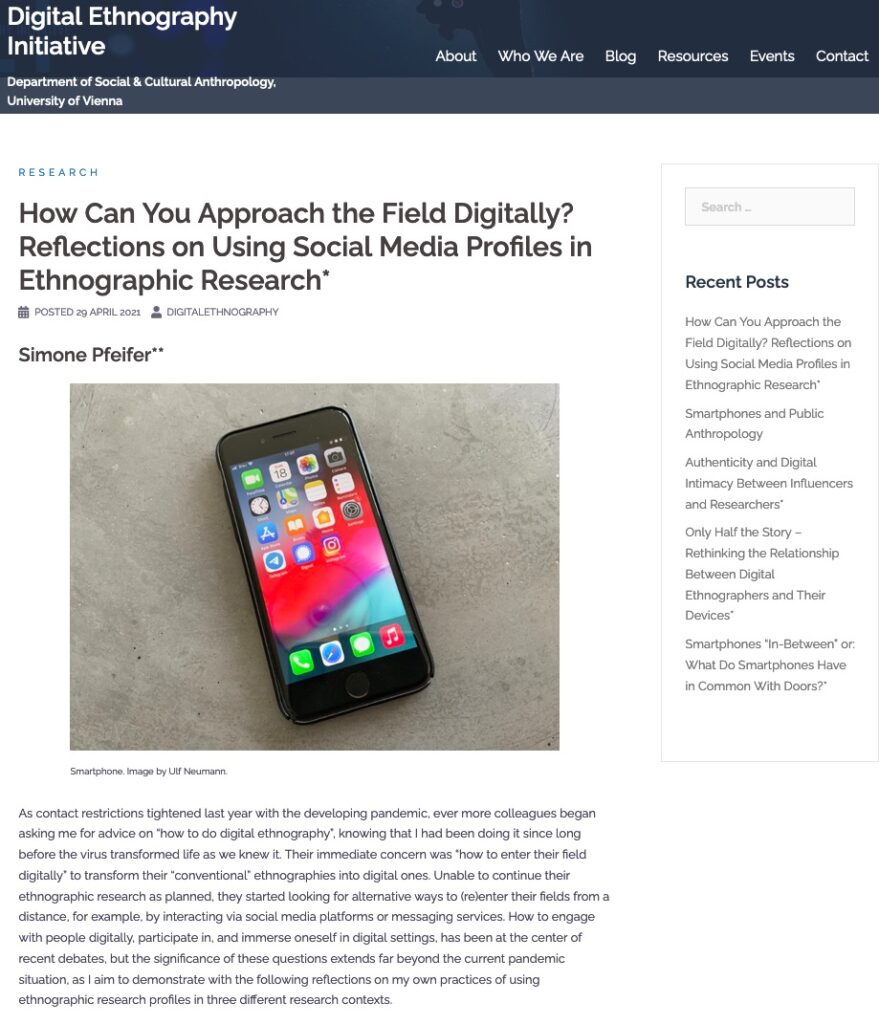
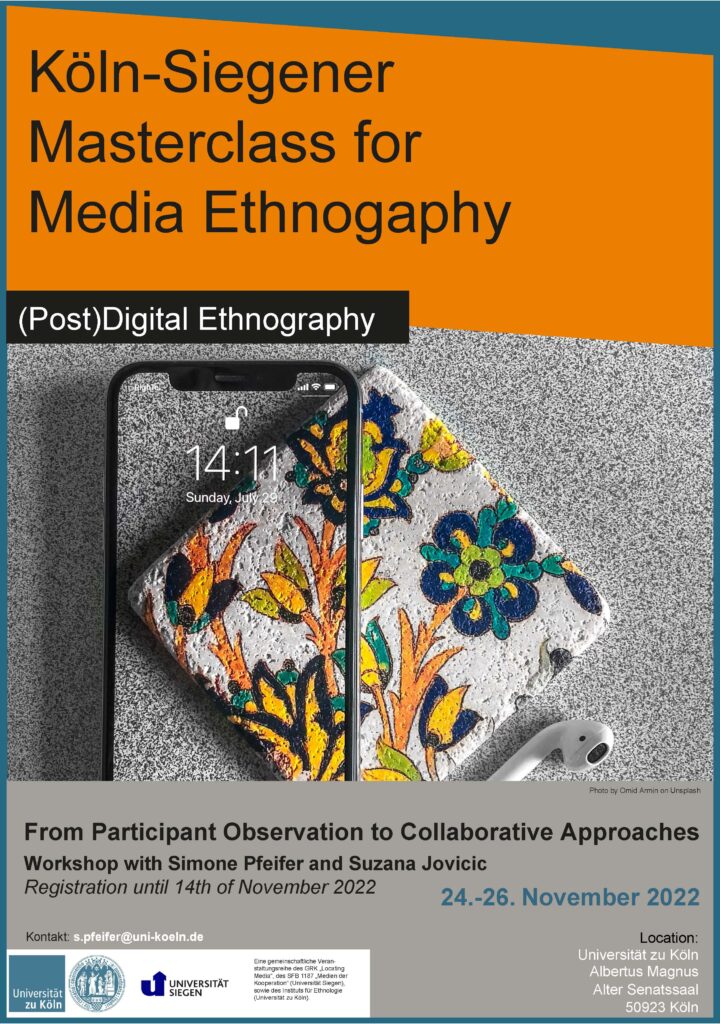
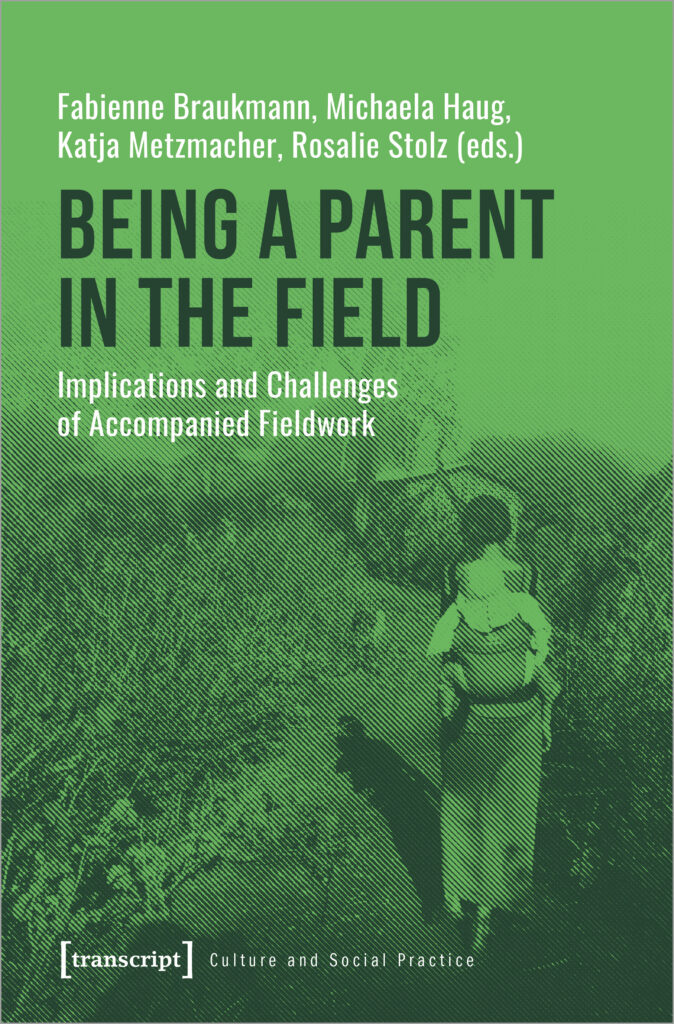
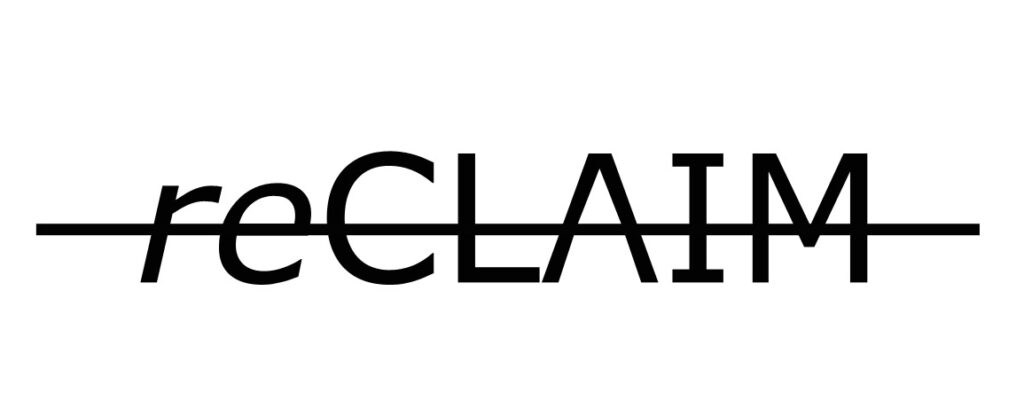
In my recent and forthcoming publications, I have looked at how to use social media profiles in ethnographic research (2021) as well as using digital ethnographic methods in contexts of refugees’ everyday life and (transnational) migration (2023) and digital team ethnography (2023) more broadly. Since my Master’s degree in Visual Anthropology at the University of Manchester, audiovisual engagements have been an integral part of my methodological repertoire. Next to cinematic approaches with different modes of filmmaking such as desktop documentary, I have been particularly interested in (digital) curation as part of my research in recent years. On the one hand I have been looking at everyday social media profiles as forms of curation and on the other hand I have been actively engaging in curatorial practices as part of my research.